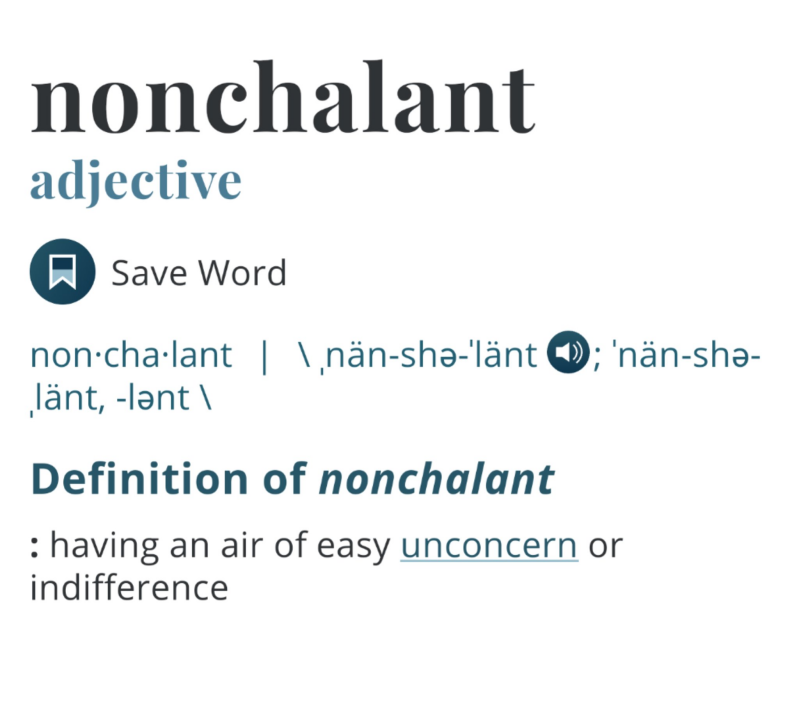
Being a nonchalant hustler doesn’t mean you don’t care. It means you care enough to not get worked up. You care enough to not stress yourself out. You’re able to show up.
When one of my learners came up to me and asked me to sponsor his new club, The Nonchalant Hustlers, I just grinned. This kid could probably ask me for a loan and I would try to make it happen.
“I’m not the most nonchalant of leaders. I’m like the chalant-est of leaders.” And it’s true. I am. I’m a Type-A, super focused, high-energy, get it all done kind of leader. I have no chill some might say.
“Don’t worry. We’ll train you up.” Ha. Okay.
What I assumed was going to be a silly club ended up reminding me that leadership can be taught and that changing the narrative around an expected behavior can change everything.
At the first club meeting, two of my learners got up in front of everyone and talked about how caring doesn’t have to look like high-stress overachieving. That being a leader and being more relaxed is fine. Caring can be quiet and calm. They were changing the story around being nonchalant. They were showing their peers that it’s okay to care about their learning and their grades. That it’s okay to get involved and have leadership roles. They were showing up as themselves and—whether they realize it or not—changing being nonchalant from not caring about anything to caring without the overwhelm.
This is just one example of how empowering learners to drive the culture of a building can be one of the most rewarding experiences. And this was just one example.
During The Launch, our completely learner-led and organized first three days of school that focus on establishing the culture in our building, there were so many examples of quiet leadership.
Learners celebrating each other for jobs well done.
Learners leading discussions, engaging with facilitators, working with the new learners in our building. Leaders being present.

Sometimes leaders are just natural born. But more often than not, I think leadership is a skill that is practiced and developed. It’s taught explicitly through experience when we let learners lead... It’s powerful.
I know curriculums are full of standards and expectations, but making time to talk about and develop leadership skills—on a classroom level, a grade level, and a school level—can change everything.
This week I’m practicing being more nonchalant, showing up without the anxiety and stress. We’ll see how it goes.
Add comment
Comments
Maybe my favorite blog post yet, but that could be just because it’s a shared experience. It blows my mind how much good can happen when adults just listen to “kids” without judgement.
Great post
I love this!!